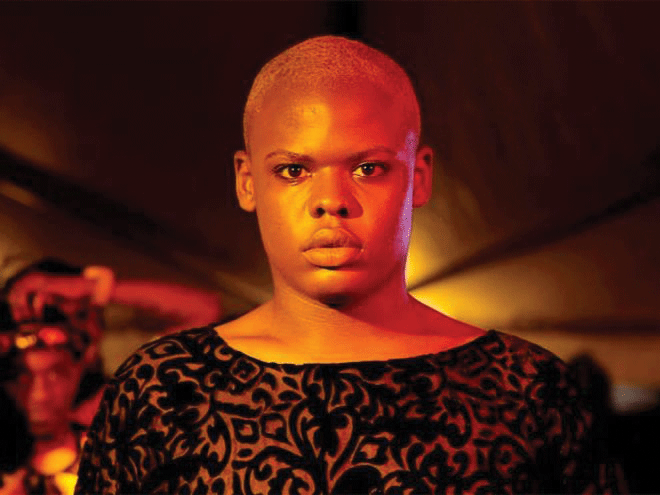Friday Night Film Series: KIKI
The Department of Lesbian, Gay, Bisexual, Transgender and Queer (LGBTQ) Studies co-sponsored the Friday Night Film Series’ screening of KIKI at Golden Auditorium on Friday, October 13 at 5 p.m. KIKI is a documentary directed by Sara Jordenö that follows seven people in the Kiki community in New York City over the course of four years. This film, with a running time of 96 minutes, has won several awards, including the February 2016 Berlinale for the best documentary and essay film.
A crowd of about 30 students and faculty gathered in Golden Auditorium, and, Associate Professor of Film and Media Studies and Women’s Studies Professor Simonson, made a quick introduction. She asked the audience to consider the ethics behind documentaries while watching, and encouraged watchers to question what it means to represent other people. Simonson mentioned the controversy surrounding the 1990s documentary Paris is Burning, in which performers were not adequately compensated for their participation in the film.
KIKI focused on the role of voguing, a style of dance that originated in the Harlem Ballroom Scene in the 1960s, in the lives of the seven individuals and other LGBTQ youths of color followed in the film. With beautiful scenes of dancing and emotional interviews, the film was eye-opening and powerful.
This film highlighted the heartbreaking struggles that LGBTQ youths of color have to deal with every day in the world of Kiki and in the city, trying to survive. The issues covered included youth homelessness, the HIV epidemic and HIV prevention, violence and job insecurity. Every Kiki house is extremely focused on bringing awareness to the importance sexual wellness and making every house member feel as if they have a family even if they feel as though they are not accepted by their biological family.
There are about 40 Kiki “houses” internationally, each with hundreds of members, where youths are welcome to practice voguing and find a family. The houses are structured like a family: there are house mothers and fathers that are the leaders of the brothers and sisters in the family. Each house is unique, and it is up to each leader individually to decide how much bonding and practicing is done within the house.
The hard-hitting battles that these youths have to deal with are heartbreaking, but the intimate moments the audience shared with the main characters of the film were heartwarming.
“Even if I couldn’t directly relate to the issues at hand, I felt inspired by the close-knit community and the love shown the families,” says first-year Kaitlyn Colby said.
The houses are a safe haven for their members where they can escape the people that ostracize them and are free to come into their own while they discover how to express themselves. Voguing functions as a form of self-expression and an outlet for a community forced to deal closely with difficult challenges.
One of the people followed in the film, Twiggy Pucci Garçon, a Kiki gatekeeper for the Haus of Pucci that worked in collaboration with Jordenö to create the film, came out after the showing to answer questions and speak to the audience. Garçon is the recipient of a five-year Center for Disease Control grant with which he spreads information about health care to Hispanic communities in New York City and travels with the documentary. He is a strong voice for advocating for change for LGBTQ youth. During the question and answer session, Garçon explained the inner workings of the Kiki houses and the balls where voguing becomes competitive and judged, and spoke about voguing in the mainstream media. Garçon explained that, while voguing has appeared in the mainstream media in the form of fashion shows, the credit to the community that created voguing and is responsible for its spread is long overdue. Voguing is not only a form fashion modelling.
“It’s a struggle, it’s a response, it’s a lifesaver,” Garçon said.
The resounding message that everyone in the audience seemed to get from the documentary was that although some progress has been made, there is still so much work to be done for the LGBTQ community, and thanks to advocates like Twiggy Pucci Garçon, progress is possible.
“Sacrifice. There’s a reason I was given this task,” Garçon responded when asked how he continues to maintain his sense of self and individuality in his difficult and inspiring line of work.
Contact Sasha Balasanov at [email protected].






